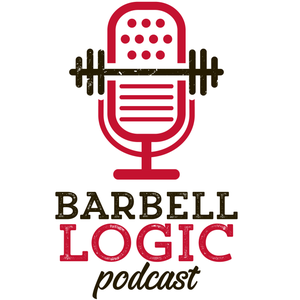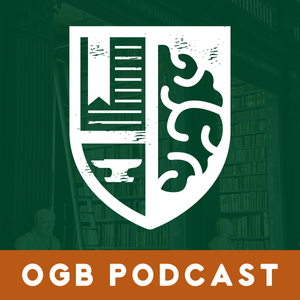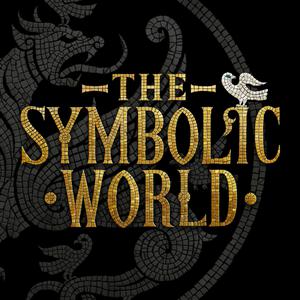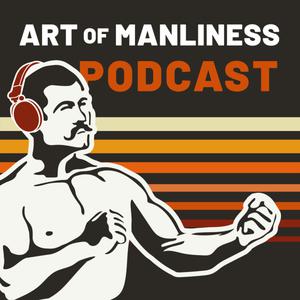
Music And Ideas
OnlineGreatBooks.com
- 2 hours 10 minutes#46 - The Incredible Jazz Guitar of Wes Montgomery
Karl, Scott, and Trent explore two seminal albums in the catalog of arguably the greatest jazz guitarist of all time, Wes Montgomery. In Incredible Jazz Guitar and Boss Guitar, Montgomery lays down an adventurous blend of hard-swinging bop, romantic ballads, and Afro-Carribean inspired grooves with an effortless mastery of guitar technique.
Although he employs a wide variety of complex techniques such as fast triplet strumming, sweep picking, and octave melodies -- almost exclusively performed with his thumb -- Montgomery never comes across as pretentious or heady. He's a generous soloist for the audience, creating plenty of space and pauses to give listeners a chance to absorb and digest his playing. He frequently quotes and reworks melodies from popular tunes of the American songbook, and in the latter part of his career he performed jazz covers of contemporary hits as well.
Wes' life was cut short early (he died of a heart attack at 45), but he left a huge mark on jazz history. His work was influential to jazz guitarists such as Joe Pass, George Benson, and many, many others. It remains fresh, too, and an easy entry point into the world of jazz for new listeners.
13 May 2022, 5:00 am - 2 hours 48 minutes#45 - Music for the End Times
Scott, Karl, and Trent discuss the meaning and purpose of music during troubled times, and share their playlists for the end of the world.
30 March 2022, 5:00 am - 2 hours 14 minutes#44 - The Russian Five, Or, Why You No Listen to Russian Musics?!
Can you imagine five of the most brilliant young musical minds sitting around the fireside, discussing how they could make a new Russian music? What form would it take? What instrumentation? What would the proper influences be? That's precisely what a group of five Russian composers did in the 19th century -- set out to reclaim Russian culture from Western European influence and in the process create a grand, majestic, and distinctly Russian music.
The Russian Five, as they are known, include Cesar Cui, Aleksandr Borodin, Mily Balakirev, Modest Mussorgsky, and Nikolai Rimsky-Korsakov. Influenced by earlier musical outlaws such as Mikhail Glinka, they brought a sweeping, picturesque programmatic style to the orchestra, often inspired by Eastern legends and Slavic folklore. Their music is full of beautiful melodies and forceful dynamic shifts, often without regard for traditional European rules of composition. More cosmopolitan composers such as Tchaikovsky refined this style, drawing from both Russian folk culture and western harmony, and in the process penned music that is still popular today, such as the Nutcracker Suite and the romance theme from Romeo and Juliet.
Overall, the Russian Five wrote music that stirs the soul while avoiding the intellectual abstraction that Western classical music sometimes tended toward. Consequently, it's easy for the modern listener to get into, and the programmatic nature of the music suits modern film well. It's no surprise, then, that film composers draw heavily from Russian composers (John Williams in particular).
24 February 2022, 6:00 am - 2 hours 44 minutes#43 - Tracing the Roots of Rock n' Roll
Scott, Karl, and Trent trace the family tree of the biggest musical genre of the 20th century: rock n' roll. The roots are deep and gnarled, it turns out, and while they touch on the usual suspects such as Elvis and Chuck Berry, rock can trace it's roots all the way back to the big bands of Glenn Miller, Benny Goodman, as well as a myriad of American folk genres.
19 January 2022, 6:00 am - 1 hour 51 minutes#42 - Bing Crosby's Christmas Classics
In part two of their study of Bing Crosby, Scott, Karl, and Trent discuss Bing Crosby's enormous impact on Christmas music and culture since he first sang "White Christmas" in 1942's Holiday Inn. "White Christmas" proved to be a huge hit, hitting number one on three separate occasions, including 1954's classic film White Christmas (twelve years after its public debut). Although the film was not initially a box office success, the titular song became the best-selling single of all time with an estimated 50 million copies sold.
Of course, Bing's Christmas legacy does not begin and end with White Christmas. He sang nearly all of the American Christmas standards, and his versions are still the most often played. For better or worse, Bing is the voice of Christmas, and all contemporary performers that dare to sing a Christmas song do so under his vast shadow.
23 December 2021, 6:00 am - 2 hours 21 minutes#41 - The First Multimedia Star: Bing Crosby & His Glittering Career
Nowadays he's the American Father Christmas, the singer of nearly all the classic Christmas songs, but for several decades he was also the biggest pop star in the world. From his early days singing in The Rhythm Boys with the Paul Whiteman Orchestra (a major band in it's own right in the 1920's), to his breakout solo career in the 1930's, and well into the 1950's with classic movies such as White Christmas -- Bing Crosby is probably the most important singer in American musical history.
With his silky smooth baritone voice and effortless delivery, Bing guided America through the depths of the Great Depression, delivered hope and spirit through World War II, and voiced the exuberant postwar 1950's. He has reportedly sold over a billion records, with 43 number one hits and nearly 400 charting singles between 1931 and 1965. He ushered in the crooner genre, paving the way for Frank Sinatra, Dean Martin, and many others. Bing was an early film star, winning four Academy Awards for Best Song, and hosted a long-running radio show with over 4,000 recordings.
A visionary and astute businessman, Bing invested in Ampex, a small California company which produced the first commercial magnetic tape recorder (originally discovered and prototyped by Jack Mullin). The tape machine proved to be a boon for Bing's demanding radio sessions, which until then had to be performed live in studio. With the tape machine, shows could be pre-recorded in high fidelity, and edited to fit the producer's tight airtime schedules. This allowed Bing to record multiple shows in one session, and experiment with multiple takes, while giving him more time to relax on the golf course afterward.
Bing was everywhere for decades, a true titan of a new era of multimedia, and the voice of multiple generations. While young people today may only know him for his Christmas music, his legacy has influenced every pop star in the twentieth century and beyond.
14 December 2021, 6:00 am - 1 hour 42 minutes#40 - The Joyful Sounds of Sacred Steel
Scott digs up an old treasure from his music vaults -- the gospel music of Florida which features an unusual instrument, the steel guitar. Played with a tonebar pressed over a horizontal neck with 6 or more strings, the steel guitar is usually found cooing and whining behind country western troubadours, but in sacred steel gospel, it's the primary instrument and often played as the sole accompaniment to the congregation's singing.
25 November 2021, 6:00 am - 2 hours 7 minutes#39 - The Form of Beauty: Hilary Hahn Performing Bach's Violin Sonatas 1 and 2, Partita 1
Scott, Karl, and Trent tackle Hilary Hahn's electric, virtuosic performances of three timeless pieces for solo violin: Bach's Sonatas 1 and 2, and the first Partita.
10 November 2021, 6:00 am - 2 hours 21 minutes#38 - Sam Cooke: The Father of Soul
Scott, Karl, and Trent discuss arguably the greatest singer of the 20th century, and how he invented the classic genre now known as "soul."
26 October 2021, 5:00 am - 2 hours 12 minutes#37- A Window into Live Jazz: Oscar Peterson at the Stratford Shakespearean Festival
Oscar Peterson at the Stratford Shakespearean Festival is a 1956 live album by Oscar Peterson, accompanied by Ray Brown and Herb Ellis.
The Peterson trio is celebrated for their seemingly telepathic sense of interplay and its virtuosity. In listening to this album, Scott, Karl, and Trent discuss how certain kinds of creativity can't be done in a premeditated way. Scott says, "It's thoughtless and intuitive— pure creativity between three people."
Karl adds, "It's closer to what I think music is, which is an expression of spirit."
Tune in for more music and ideas, brought to you by onlinegreatbooks.com.
12 October 2021, 3:58 pm - 2 hours 19 minutes#36- The Master of Tension: Holst's 'The Planets'
The trio discusses The Planets, Op. 32, a seven-movement orchestral suite by the English composer Gustav Holst, written between 1914 and 1917.
When you first listen to this, you might just be recollecting it— The Planets comes with a long list of imitations churned out by film composers. Karl says, "It's the form of 20th-century film score."
You'll immediately recognize Holst's ability to create tension with certain musical cues. As an avid astrologer, he brings each of the planets and their corresponding astrological character alive with different styles of orchestration.
The whole score has become a modern classic. But how does it compare to Beethoven? Scott says, "Modern writing shies away from nobility... Beethoven is fine feeding you a steady diet of pure beauty and nobility. This doesn't have that hope in it that I hear in Beethoven."
Still, The Planets remains one of the most accessible entrances to classical music. Tune in for more music and ideas, brought to you by onlinegreatbooks.com.
22 September 2021, 6:27 pm - More Episodes? Get the App
Your feedback is valuable to us. Should you encounter any bugs, glitches, lack of functionality or other problems, please email us on [email protected] or join Moon.FM Telegram Group where you can talk directly to the dev team who are happy to answer any queries.
 Barbell Logic
Barbell Logic
 Online Great Books Podcast
Online Great Books Podcast
 The Symbolic World
The Symbolic World
 The Art of Manliness
The Art of Manliness
 Starting Strength Radio
Starting Strength Radio